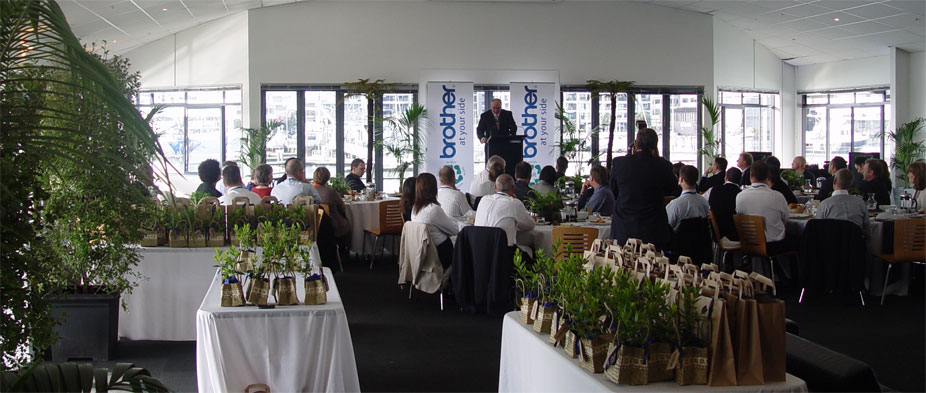Your boss has given you the task of choosing the perfect venue for your next company function in Auckland. Where do you even begin to look? You know he is counting on you to find a venue that fits each of his criteria… and he will not be satisfied unless it is flawless.
The process of selecting a venue for an important business function can be lengthy and frustrating. However, recognising the strengths and weaknesses that must be weighed between different venue options can help to make this daunting task a little simpler.
“Location, location, location”…
This is a timeless cliché in the business world. This adage applies fittingly to venue selection. The vicinity in which a venue is located can have a significant impact on the atmosphere it projects. While a scenic environment can have a positive effect, a questionable-looking neighbourhood may have a negative effect. Relative ease in finding the venue is also important. If guests undergo difficulty in reaching the venue, they not only arrive late, they arrive unhappily. An easy-to-find location, or at least provision of helpful directions, ensures the attendance and happiness of guests.
Physical details of the venue
Finding a venue that suits its event is crucial. A business conference may find more need for function than elegance, but a wedding definitely necessitates the latter. Venue occupancy is another key consideration. Selecting a venue only to find that it lacks the room required to accommodate all involved participants at the event can yield disaster. Additionally, the venue must be able to comfortably fit booths, tables, chairs, and anything else that could take up space. Another pair of necessities in accommodating guests are adequate parking and handicap accessibility. Without well-developed facilities for these needs, guests could arrive in the same manner previously attributed to a hard-to-locate venue: tardy and disgruntled.
Other important details
Built-in properties of the venue aren’t the only features that are important to an event. More optional aspects are necessary, too. Many venues provide in-house catering (or at least free water), and include items such as vegetarian, gluten-free, and/or allergy-respecting options to accommodate to a variety of guests’ needs. Depending on the event, access to wireless Internet can be absolutely essential. Likewise, pencils, paper, notepads, whiteboards, markers, projectors, screens, sound equipment, tables, chairs, and countless other objects can play very useful parts in any function, and consequently, many venues provide some or all of them.
Take time to visit the venue
Some aspects of a venue can’t be quantified, and must be seen in person to properly determine their condition. One such quality is the competency of the staff of the venue. Visiting the venue and observing their staff is a sure fire way to tell whether or not they could be trusted with facilitating a given event. Friendliness, helpfulness and likeability of staff are all criteria to consider. Another key aspect to look for is the immeasurable “X-factor”. This may be spectacular service, admirable ambience, delicious dining, or any other aspect that can only be fully appreciated first hand.
Choosing a venue to host an event requires one to examine several different components of the venue, including its location, event suitability, optional properties and intangible strengths. Any planner looking to satisfy all of these aspects should look no further than the Auckland’s Floating Pavilion.



